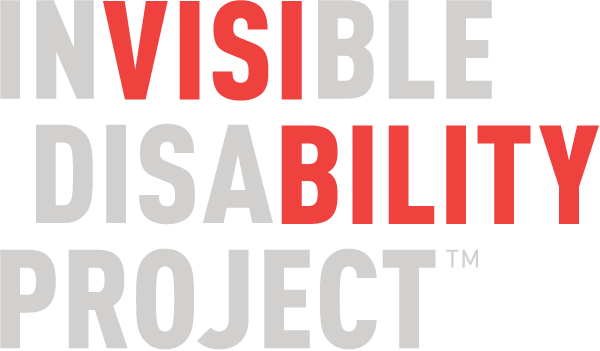Giving Myself Permission
Guest Zine by Kelsey Shaffer
Nearly a year ago, I was approached about becoming a part of The Invisible Disability Project’s video series “This is Me” after being released from the stress ward of the hospital from a depression- and anxiety-related episode leading to suicidal ideation. After being discharged from the unit, I began posting on Facebook about my experience, mostly trying to relate the poignant moments with some humor to find the humanity in the situation.
From that experience, I learned that appearing to have your shit together is highly overrated.
As I shared my stories online, people began reaching out either publicly or in private messages to talk about their own struggles and to express their relief that someone else finally seemed to understand. The sad thing is, I’m completely positive that more people relate than you think, we’ve just been taught to hide it because to admit our hardships would make us seem fallible and weak when the opposite is true.
I perform poetry to encourage dialogue on the subject of mental health and my own experiences with anxiety and depression, because art is how I know to communicate. “This is Me” helped to show me that I can use the same voice that I talk to my friends with to also share my story with complete strangers.
No acting. No performance. Just… me.
In the comments section of the video, someone commented that I was wearing red lipstick and had a nose ring, which showed that I wasn’t actually struggling since I was drawing attention to myself. To be honest, I hadn’t anticipated backlash in such a supportive community, but the replies to his comment gave me the most help of all. The IDP community did not react with anger and hatred, but instead used the opportunity to educate and inform him that his impression of depression is exactly why we consider it to be an “invisible disability.” More than anything, seeing such a well-informed and supportive network did more than my video ever could.
Since the video, I struggled for months on incorrect medication and almost giving up several times; while sharing my story is one thing, it’s still a far cry from seeing the moments of sobbing for no reason and being unable to eat or sleep more than a few hours for weeks at a time. Our project videos are a conduit through which understanding can begin, and to show others they aren’t alone, but it’s just the beginning.
A year later, I’m living in Melbourne, Australia and have been on a consistent medication which has minimized my episodes, allowing me to live a more consistently good life. I know that saying “it gets better” doesn’t have an immediate effect for the current state of depression or anxiety a person may have, but letting them know that you’re going to be there for the journey for that to happen is just the beginning, and that’s what I’m hoping was achieved by my participation in “This is Me.”

